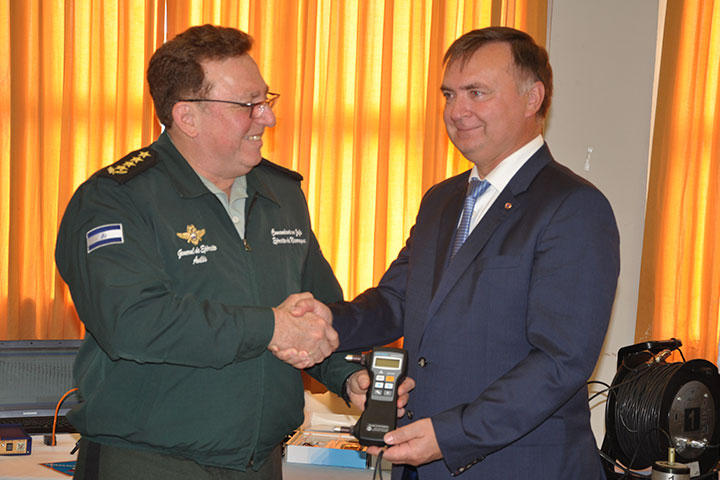
Switzerland funded Russian-influenced body despite warning

The Swiss government continued funding the International Civil Defence Organisation (ICDO), despite being warned that it was mismanaged and under Russian influence, according to documents obtained by Swiss public radio RTS.
RTS reported Wednesday that Bern paid CHF1.3 million ($1.3 million) to the Geneva-based ICDOExternal link between 2009 and 2017, even though as an observer state, it knew about the organisation’s management failings and obscure strategy.
A 2014 memorandum from the Swiss permanent mission to the UN obtained by RTS talked of “methods lacking in transparency” and recommended that Switzerland reconsider its relationship with the ICDO. However, government funding continued to the tune of CHF150,00 per year up to 2017.
The harsh conclusions of an audit commissioned by the government at the end of 2016 may be the reason it did not renew funding in 2018, according to the RTS report. The Foreign Affairs Ministry, which provided funding through the Swiss Agency for Development and CooperationExternal link says that was for budget reasons, although it also said the last audit “showed both serious, persistent failings and real progress”.
The ICDO’s troubles are now public, says the report, with its Russian Secretary-General Vladimir Kuvshinov accused of nepotism, authoritarianism and paying himself some CHF35,000 per month as revealed by Le TempsExternal link newspaper.
RTS said it had obtained several testimonies concerning Kuvshinov and his close circle in the ICDO, including a financial intermediary outside the organisation. In these times of diplomatic tension with Russia, it says another troubling aspect of the documents obtained is the direct influence of Moscow on the ICDO. The 2014 memorandum talks of the “strong influence” of Moscow as a factor in its recommendation for Switzerland to distance itself.
Regarding use of funding, the Foreign Affairs Ministry maintains that the money was used for the agreed objectives, i.e., civil protection training. RTS says that according to its information, the only tangible activities of the ICDO are these training courses and the sending of old civil protection equipment from Swiss cantons to developing countries.

More
Relations between Switzerland and Russia remain tense

In compliance with the JTI standards
More: SWI swissinfo.ch certified by the Journalism Trust Initiative




























You can find an overview of ongoing debates with our journalists here . Please join us!
If you want to start a conversation about a topic raised in this article or want to report factual errors, email us at english@swissinfo.ch.